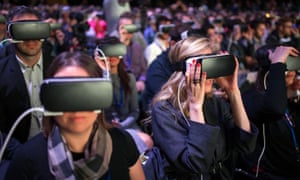Collective identity: blog task
Read the Media Magazine article on collective identity: Self-image and the Media (MM41 - page 6). Our Media Magazine archive is here.
Complete the following tasks on your blog:
1) Read the article and summarise each section in one sentence, starting with the section 'Who are you?'
Who are you section - we're all constructing an image to communicate
our identity. There is a difference between the
person we think we are, the person we want to
be and the person we want to be seen to be.
I think, therefore I am - we present ourselves based on social constructs, constructed
outside of our selves; class, religion, gender and
the predetermined roles
The rise of the individual - idea that beneath the surface there was an ‘essential
self’ – the core of who you actually are.
Branding and lifestyle - Branding is the association of a ‘personality’
with a product. Advertisers sell the personality
rather than the product, so that people will
choose products that match their own self image.
2) List five brands you are happy to be associated with and explain how they reflect your sense of identity.
Apple - own multiple apple products, always using my phone constantly
Twitter - active user, use Twitter to check up on news, especially to do with hip-hop culture
Mac - enjoy using make-up products from there, use those products often daily
Instagram - post up pictures daily
Adidas - own loads of clothing from there and use their bags for sports wear
3) Do you agree with the view that modern media is all about 'style over substance'? What does this expression mean?
This notion of self-image being defined by
brands and products, rather than by authentic
human experience, I agree with this statement especially considering the fact that society has constructed this factor the idea that designer brands represents who you are.
4) Explain Baudrillard's theory of 'media saturation' in one paragraph. You may need to research it online to find out more.Baudrillard theory of ‘media saturation’ results in
high cultural value being placed on external
factors such as physical beauty and fashion
sense over internal traits such as intelligence or
compassion
5) Is your presence on social media an accurate reflection of who you are? Have you ever added or removed a picture from a social media site purely because of what it says about the type of person you are?
Social media is there to give the reflection which the user wants to construct out to others. Some people are cautious as to what they portray because of the critical response they might get from family/friends. Personally, pictures on social media is 90% media saturated, which promotes how the user wants to promote physical beauty and fashion sense over internal traits. Self-image is communicated through
the technical and artistic decisions made.
6) What is your opinion on 'data mining'? Are you happy for companies to sell you products based on your social media presence and online search terms? Is this an invasion of privacy?
Data Mining - allows
corporations to create products designed to meet
the needs we reveal in our personal information and ultimately we
end up selling our selves. This is an invasion of privacy as corporations have our personal details, also when signing up to social media sites, such as Twitter, Facebook and Instagram, the license agreement 99% of the time is never read by users, ultimately everyone is signing up to social media sites to sell away their private details. Although, sometimes it's useful to see products based on your social media privacy but that's very rare.




